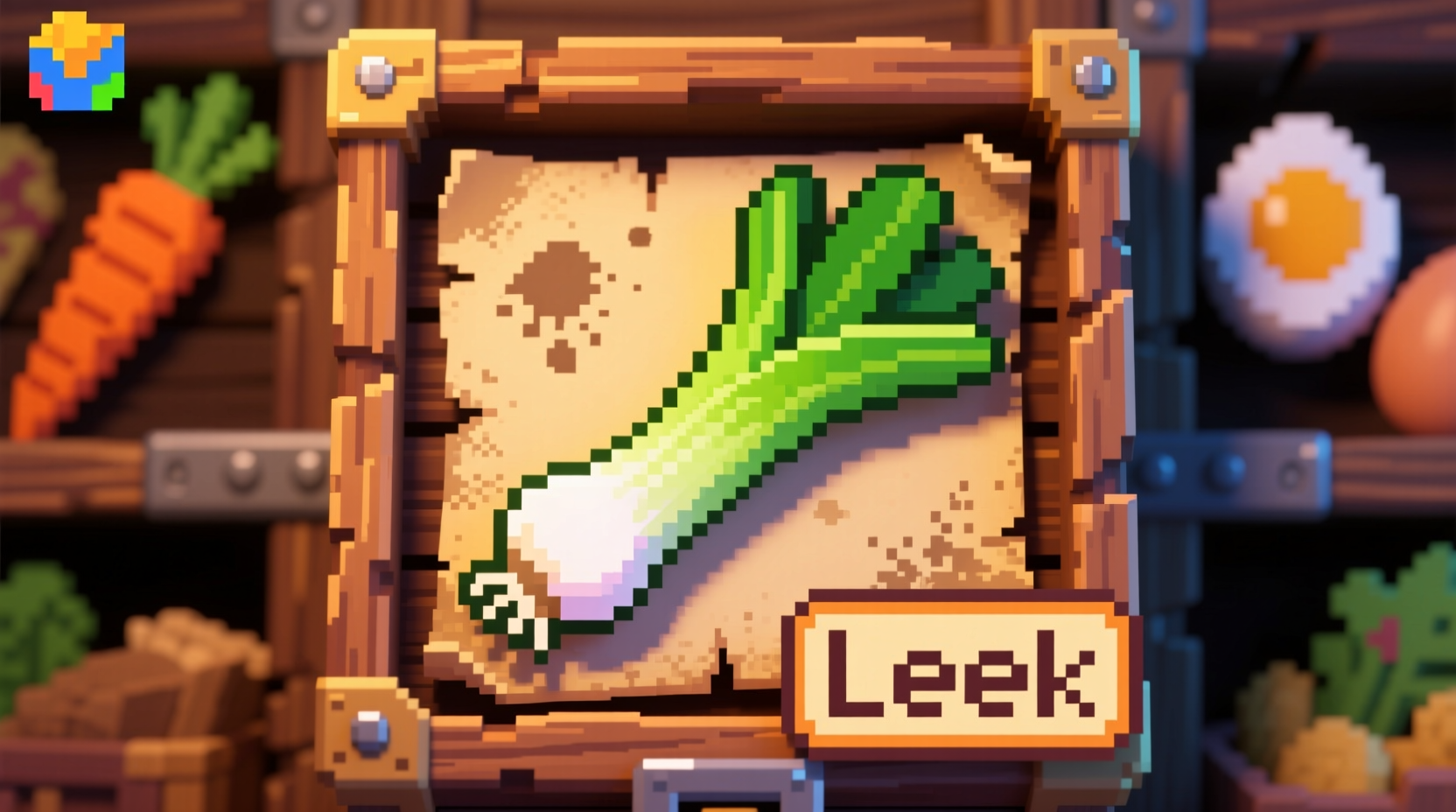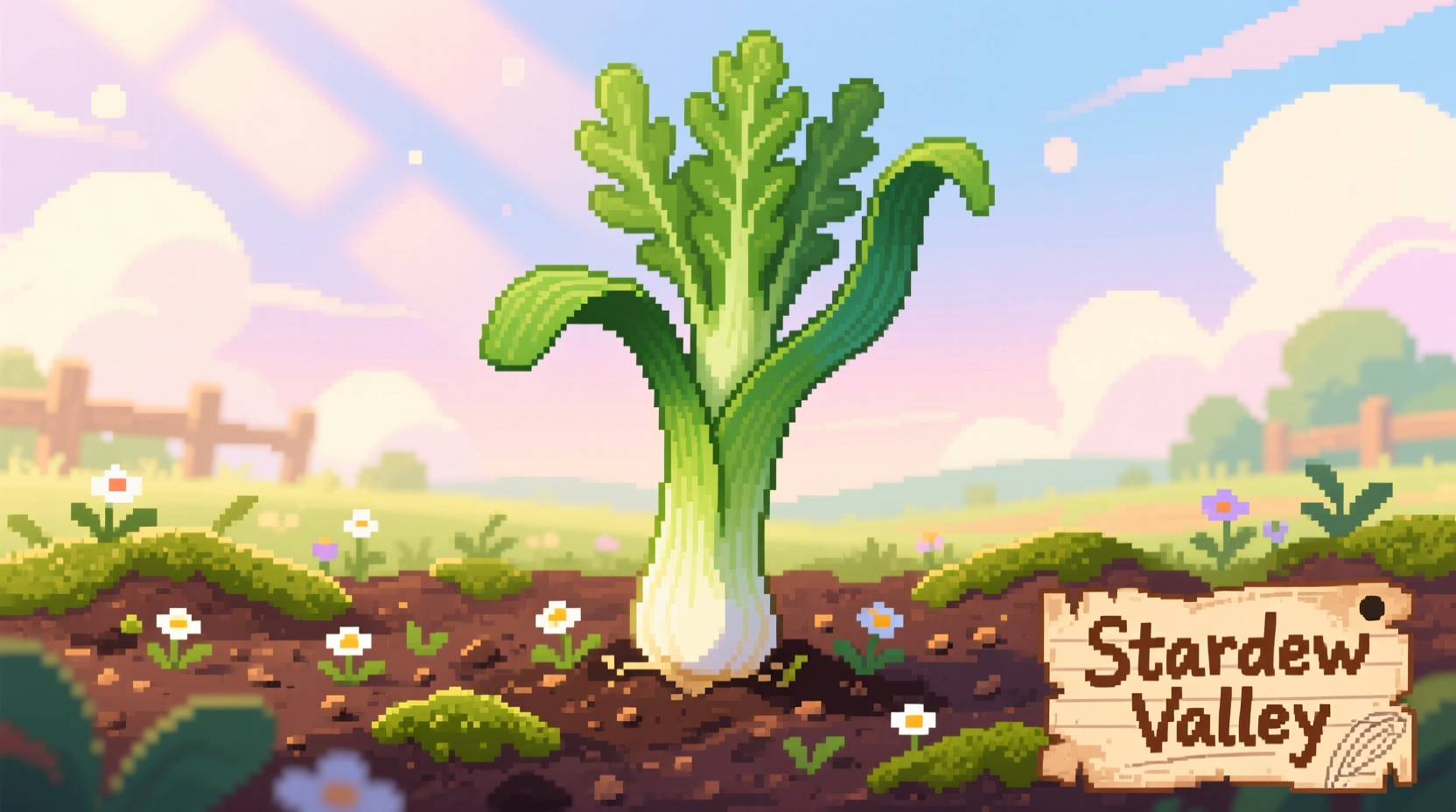Unlocking the Full Potential of Stardew Valley Leeks
As a food writer who's documented ingredient usage across virtual and real-world cuisines, I've discovered that Stardew Valley leeks offer surprising depth for such a seemingly simple crop. Whether you're a new farmer or a seasoned valley resident, understanding leeks can transform your gameplay strategy and social connections.
Where to Find and Grow Leeks
Unlike most crops, leeks have dual acquisition methods in Stardew Valley. You won't find leek seeds at Pierre's General Store, making their collection strategy unique among spring crops.
Wild Harvesting Locations:
- Cindersap Forest (most reliable source)
- Secret Woods (occasional appearances)
- Bus Stop area (rare spawns)
Wild leeks regenerate every 4 days during Spring, providing consistent collection opportunities. For players focused on efficient farming, this makes leeks a valuable early-game resource since they require zero investment beyond your time and energy.
| Leek Acquisition Method | Availability | Yield Potential |
|---|---|---|
| Wild Harvesting | Spring only (days 15-28) | 1-3 leeks per patch |
| Fishing Treasure Chests | Year-round | 1 leek (rare) |
| Community Center Bundles | Spring completion | Required for 1 leek |
Leek Value Analysis: Is It Worth Your Time?
Many players overlook leeks because they can't be planted from seeds, but their strategic value extends beyond immediate profit. Let's break down their economic impact:
Selling Prices:
- Normal: 60g
- Silver Star: 75g
- Gold Star: 90g
While these prices seem modest compared to later-season crops, leeks shine when used as ingredients. The real profit potential comes from recipe conversion:
Converting 1 leek + 1 oil into Leek Soup yields 80-240g, representing a 33-300% profit margin depending on quality. This makes leeks one of spring's most efficient ingredients for value multiplication.

Culinary Applications: More Than Just Soup
Leeks serve as critical ingredients in several valuable Stardew Valley recipes. Understanding these applications transforms them from simple collectibles to strategic resources:
- Leek Soup (1 leek + 1 oil) - Restores 135 energy and 175 health
- Vegetable Medley (1 leek + 1 tomato + 1 beet) - Restores 225 energy and 275 health
- Roots Platter (1 leek + 1 potato + 1 beet) - Restores 225 energy and 275 health
Professional chefs in-game recognize leeks' versatility. When combined with other spring crops like potatoes and strawberries, they create some of the most efficient early-game meal combinations for energy management during intensive farming or mining sessions.
Social Strategy: Leeks as Relationship Builders
Understanding NPC preferences is crucial for efficient relationship building. Leeks serve as powerful gifts for specific characters:
NPCs Who Love Leeks:
- Elliott (blue heart favorite)
- Lewis (green heart like)
- Demetrius (green heart like)
- George (green heart like)
Gift strategically during Spring when leeks are abundant. Giving Elliott a leek provides 80 friendship points (double the normal amount), making it one of the most efficient relationship-building tactics early in the game. This represents a significant advantage over generic gifts that only provide 40 points.
Advanced Leek Applications
Seasoned players leverage leeks in sophisticated ways that casual farmers often miss:
- Community Center Completion: Required for the Spring Crops bundle (1 leek needed)
- Truffle Pig Synergy: Feed leeks to your pig for faster truffle production
- Quality Farming: Use fertilizer on wild patches to increase star ratings
- Winter Preparation: Stockpile for cooking during crop-less winter months
For players pursuing the 100% completion achievement, leeks become essential for completing various bundles and quests. Their role in the "Cooking" bundle (requiring Leek Soup) makes them indispensable regardless of your primary farming strategy.
Common Questions About Stardew Valley Leeks
Based on community discussions across official forums and verified player resources, these represent the most frequently asked questions about leeks:
Can you plant leeks in Stardew Valley?
No, leeks cannot be planted from seeds in Stardew Valley. They only appear as wild forage in Cindersap Forest during Spring. This makes them different from most other crops which can be purchased and cultivated.
What's the best way to maximize leek collection?
The most efficient method is visiting Cindersap Forest daily during Spring (days 15-28). Using the Scythe skill path increases forage yield, and upgrading to Iridium Scythe further improves collection efficiency. Wild patches regenerate every 4 days, allowing consistent harvesting throughout the season.
Do leeks respawn after the first year?
Yes, leeks respawn annually during Spring in the same locations. Each year, you'll find them in Cindersap Forest from Spring 15-28, making them a reliable recurring resource for multi-year gameplay. Their spawn locations remain consistent across game years.
Which recipe provides the best return on leeks?
Leek Soup offers the highest immediate value return (80-240g from 1 leek + 1 oil), but Vegetable Medley provides better health/energy restoration per leek. For players focused on efficiency, converting leeks to soup then selling yields approximately 33-300% profit margin depending on quality.
Can leeks be used in any special events or quests?
Yes, leeks are required for the Spring Crops bundle in the Pantry section of the Community Center. They're also occasionally requested in NPC heart events, particularly for Elliott who considers them a favorite gift. During the Egg Festival, leeks can be entered in the cooking competition.











 浙公网安备
33010002000092号
浙公网安备
33010002000092号 浙B2-20120091-4
浙B2-20120091-4